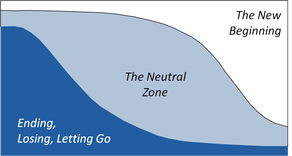|
I spent my morning yesterday with a gifted lady from our church planning, dreaming, and laying out some plans for transforming a space in our church into a place of connection, fellowship, and where we in leadership can spend time with guests, visitors, and members. One thing she said stood out more than anything else:
"I want it to look like someone cares." Guys, if you're leading in the church, you've been given Christ's Bride to take care of. You're responsible for God's children. You're shepherding people going through the pains of a fallen world. You're stewarding resources people trust to your leadership. You're regularly teaching God's Word. You're giving your best time and energy towards God's work. So do it with excellence. Do it because you care. Excellence isn't perfection. You'll never be perfect, nothing will ever go off without some mishaps. You'll lose your place in your message, your voice will crack during a solo, you'll lock the keys in the church van (or lose them in a waterfall!). Something will happen. But chasing excellence means you're limiting the opportunity for those things to happen. Excellence is a reflection of our worship. When I went on a mission trip one time, some on our crew decided to slack off and goof around on the work. Our contact for the project shared a verse that still resonates: "Whatever you do, work heartily, as for the Lord and not for men" (Colossians 3:23). Our pursuit of excellence comes from being joyfully found in Christ and responding to that with our best efforts. He deserves nothing less. Excellence requires investment. It's National Signing Day today, and across the country 17 year olds will put on hats saying what college they'll attend. Extra emphasis will be put on the ones who come in highly regarded. What separates these extremely talented players from each other? The investment into the sport. They care more, they're willing to sacrifice more, they're willing to do more reps. As a leader, are you willing to invest more? Or are you along
2 Comments
 Last week I wrote a post on the multiple hats you'll wear in ministry. And I wanted to write the follow-up to that. Ministry is much more than the preparation and delivery of messages and lessons, but it is never less. So that's why it's essential to make sure you wear the "Preacher Hat." In fact, this is the most important hat you'll wear as a ministry leader. It's one that requires time, discipline, attention, and your best effort. It's that important. God sent his Son to preach, so He must think it's important to be an effective teacher/preacher/communicator. Here's a few rules to follow as you make this an important priority in your ministry. 1. Be disciplined to plan and work ahead - I know some guys who work 6 months in advance. Others who are maybe a week or two ahead. Every leader has to find their wheelhouse. I prefer to be 4-6 weeks ahead, but always at least 2. And there's always those who are going Sunday to Sunday. I applaud them because they're usually laboring bivocationally or carrying a number of other responsibilities. Regardless, the important part is to be disciplined. Study and preparation time doesn't just appear, it's carved.  2. Intentionally block your time - One of the perks of the flexibility of ministry is that you often get to dictate your own schedule. There'll be the routines of meetings, appointments, and general office responsibility, but for the most part your schedule is yours to create. Blocking time is something that can set you up well for success, but it requires intentionality. A leader's most valuable resource is time, and it's also the quickest thing to get eaten up (for example, how much time can you waste surfing the web?). Another perk of blocking time, especially if you use a computer calendaring tool, is that you can always slide your commitments around when the inevitable surprise comes up. Here's a picture of what my today looked like. The best thing is that if anything pops up I can just click and drag to another day what I need to get done. 3. Work Hard on your Content - No message of any value comes easy. It takes hours of study, reflection, prayer, doodling, outlining, refining, rehearsing, editing, revising, more editing, and finally delivery for what you have to say to folks. Because it's God's Word, it requires your best. Some people believe in the motto of "1 Hour per 1 Minute," and others are able to churn quickly because they can multitask. However God has wired you, go for it. But he hasn't wired you to take shortcuts, slack off, or throw something together last minute. Ministry isn't easy, if it was no one would drop out. 4. Consider it a joy! - It's a rich blessing each week to be responsible for teaching the Word. Whether you're the main preaching pastor, a small group leader, discipleship coordinator, or some other role, know you're the real recipient of the blessing. When you do the work of study and preparation, you're being fed and enriched like nobody will ever know. The greatest transformation that happens during a message or lesson isn't in the congregation or group hearing the message, it's in the one giving it. You'll find yourself changed, refined, driven to repentance, and sharpened more than anyone else will be. If not, you're doing something wrong!  5. Evaluate and Improve - Whether you watch yourself on tape or solicit feedback from others, always be improving. Even if you've been doing this for 50 years, you still have the opportunity to grow. Evaluate your effectiveness in communicating to different generations, on how you drive the application of the passage, your take-off and landing, and your illustrations and connections. One of my favorite preaching books in recent years is Saving Eutychus, the byline is "How to preach God's word and keep people awake." They have a really helpful evaluation form to consider using! What have you found to be important in your preaching & teaching ministry? Share in the comments! It's not even noon yet, and so far today I've done premarital counseling, helped clear out a storage building, greeted guests coming to a weekly preschool outreach, approved membership reduction letters, prepped for a funeral, and about to go to the hospital. It's not even noon. One of the things I think a lot of guys in a new ministry assignment figure is that they'll get to claim living out Acts 6:4 "But we will devote ourselves to prayer and ministry of the Word" and study, sermon prep, pray, and read systematic theology books. A couple years ago on leadership skills for ministry, one person replied to my open-ended survey with "A pastor should study, study, study, then when he's done studying he should pray about what to study next!" I love what my friend Sam said about this: Hear me on this: Ministry is never less than intensive time in study, sermon/lesson preparation, and focused prayer. But you will find yourself wearing many more hats than you ever dreamed of. I've met many pastors who've been called in to break up family disputes, who've been asked to change tires, who've served as preacher, secretary, and janitor in their churches, and some who painted the parking lot. You cannot hide behind your study door and claim to be doing ministry while not recognizing the flexibility often required to shepherd people and lead a church. Doing that reduces your effectiveness in the pulpit, because instead of giving sermons to people as a shepherd, you're giving them lectures from the Bible. There's a huge difference between the two, and sometimes the shepherd has to do a lot of different things in order to speak with clarity and receptivity. You'll wear a lot of hats in ministry, here's 5 you might find:  The Hard Hat Ministry leader, when there's work days or things around the church that need doing, you don't need to be at every single thing, but your folks need to know you're willing to do your share. Wearing the hard hat doesn't mean you have to design and configure everything, sometimes it just means being a grunt. Don't be above cleaning toilets, hauling brush, or taking a sledge to something. That can be fun.  The Clown Hat Ministry can be really fun. You get to laugh with people as they go through joyful times, you get to be a part of VBS (which by the way is an all-hands-on-deck season), so lighten up and have fun. One of the things I constantly tell folks in ministry is to take their work seriously, but not themselves. Thankfully I've never been part of a dunk tank. But I have been pied in the face, covered in slime, and starred in one too many silly promotional videos. Roll with it. You'll build credibility and relationships with people when they see you're not a stiff.  The Accountant Hat Serving in ministry means a lot of time in front of people teaching, speaking, preaching, casting vision, and being the public face. But like most public jobs, there's so much behind the scenes that has to happen. That's why you need to wear the Accountant Hat. You need to be able to administrate, to manage, delegate, and work behind the scenes. You need to be able to plan, manage your time, coordinate people, and oversee finances. I have no desire to ever see what people give--but I know the budget ultimately falls back on me. So I need to make sure we're being wise stewards.  The Journalist Hat Writing serves as an excellent complement to speaking. If you want to multiply your audience as a speaker, become a writer. I think pastors should write books, should write blogs, should write articles. Writing forces you to be a more condensed communicator. You don't have a 30-40 minute sermon, you have 500 words. Make them count. But you also need to be able to write so you can communicate the story. Vision has to be written down. It has to be shared. It has to be read. It has to stick.  The Kevlar Helmet When you're dealing with people and getting into their lives, it won't always be pretty. Sometimes you'll have to confront and counsel someone in adultery, or you'll have to make difficult decisions that result in losing people. Or you'll have to walk into a tense funeral and be a peacemaker. But more than all of that, you'll find yourself in the battlefield of spiritual warfare, dealing with an Enemy who doesn't use worldly weapons. He plays much dirtier. In Paul's "Armor of God" section in Ephesians 6, the helmet is connected to our salvation. Wearing this hat is your way of reminding yourself of God's work in your life, that He will never leave or forsake you, and that He will carry you through as His child. It also helps you when you take the blows of criticism and difficult days so they don't do lasting spiritual damage. Have you had to wear any other hats as a ministry leader? Share them!  "Every new beginning comes from some other beginning's end" These lyrics from the song "Closing Time" speak so profoundly of what happens during a transition. I just sent off the draft my an upcoming book on starting well in ministry. It's geared for people who are entering the early days of their ministry, starting a new assignment, or those who need to hit the "reset" button on their ministry. Perhaps one of the best books out there on handling transitions is the book Managing Transitions by William Bridges. The general premise is that transitions are different than changes: changes are structural, while transitions are personal. Whenever there's a transition in an organization, there's a relational process that happens and needs to be navigated. It's worth the time to read if you're in ministry leadership. What we do is more than just adjusting organizational charts, we're impacting people's lives. So we need to make sure we navigate the "Neutral Zone" well.  In my time in ministry I've had to get 3 new beginnings, which meant 3 "other beginning's ends." They weren't just "job changes," they all involved moving the family, saying goodbye to dear friends, and the excitement of building new relationships. Here's some things I've learned over the years about managing these transitions. 1. They're hard - It's never easy to leave. There's a lot that goes into it. You have to sell a house, pack a truck, sell your stuff, and say goodbye. They're not supposed to be easy. When we knew God was calling us to Florida, we were so excited about the next chapter. We knew it'd be hard, but nothing could prepare me for nervously reading a goodbye letter. If a ministry departure isn't hard, you're doing something wrong. 2. Friendships overcome distances - Because ministry is intensely personal, you're going to develop friendships that are going to last longer than your tenure. The wonderful news is that with social media you can still connect with folks you care deeply about. And it means you're free to break connections with others. There will be some you'll be connected with just because they're in the same church as you. They probably won't miss you either. That's reality. 3. Move on - If you're entering a new ministry assignment and you're still holding onto the previous one or trying to continue to be "their pastor," you'll never be able to be fully invested in where God has you now. So move on. Give your current assignment your focus, and let what happens after you leave happen. You're not responsible for what happens after you go, and that's ok. Failing to move on from an assignment you've left is a lot like checking up an ex-girlfriend. It's not healthy. 4. You're not obligated anymore - One of the great things about leaving an assignment is that you've left. I love getting together with my predecessor here in Florida. He's a huge encouragement, he's able to help me navigate some of the relational channels here. But at the end of our conversation he always says "Good luck!" because it's not his problem anymore. 5. Dive in - You've been asked to move to a new ministry assignment and invest in new people in a new community. Dive right in. Give it your all. Don't look back, and invest all you've got where God has you now. He's the one who orchestrated and authored your calling and transition, give it your best for His sake.  "I want the whole world, give it to me now!" - Those words from Veruca Salt in Willy Wonka and the Chocolate Factory give us a great perspective into the microwave culture we're in. It's a culture that wants instant results, immediate change, and gets frustrated when things don't go as well as we'd like. If you want proof, consider the average tenure of an NFL head coach is 38 months, Yahoo has been ready to jettison their CEO less than a year after she started, and your smartphone has gone through more software updates than you can count. One of the things I've seen as both a parent and former youth pastor is that a lot of times we carry over that microwave mindset to our kids. We want to see immediate change and results (there's a reason why the book Have a New Kid By Friday was such a big seller), and when those don't happen as quickly as we'd like we're quick to move on to a new school, new coach, or complain about the youth or kids pastor. Not that that ever happened to me or anything... But instead of adopting a microwave mindset, can I suggest we look at a legacy mindset. This takes more time, requires more effort, and moves a lot slower. But it has the potential to produce lasting results. A legacy mindset goes beyond the immediate to the generational. In other words, you can leave a lasting impression in your family that will shape your grandkids and beyond. To get there, ask yourself these five questions: 1. Have I experienced the life change I'm expecting in my kids? You can't lead where you've not been, and for us as parents it starts with examining ourselves. Have we given ourselves to Christ? Have we experienced the fruit of repentance? Are you growing in your faith and dependence on God? 2. Am I demonstrating a consistent walk? Over 1/4 of those who leave the church because of something that happened reported it was because of hypocrisy or judgmental attitudes. Both of these are inconsistent. A judgmental attitude over expects others and doesn't deliver on its own. Hypocrisy says one thing and does another. Are your kids, regardless of their age, seeing that? It doesn't mean you need to be perfect. It does mean you need to be humble when wrong, repent when you mess up, ask forgiveness, and be genuine. 3. Are we making the local church a priority? One time meeting with another next-generation pastor, he asked me how many students we'd have for our weekly worship service. I told him "Sometimes 15, sometimes 40. Depends on if they have something better to do." Babylon Bee did a spoof on this approach as well, with the headline "After 12 Years of Quarterly Church Attendance, Parents Shocked By Daughter's Lack of Faith." When we make the local church a priority, we're committing ourselves to be around God's people for worship and fellowship. We're carving "sacred time" for our families. 4. Am I concerned for their soul? I'll never forget one of my doctoral professors sharing his vision for family ministry reminding us all of something incredible: our kids will live forever. When we look at parenting as shepherding our kids' hearts, we see our role as much more than protecting them and making sure they get into a good college. We're working towards them becoming our brother or sister in Christ. Our living rooms in essence become a mission field. And that doesn't change regardless of how old your kids are. So pray for them. Pray with them. Share with them. And point them to the One who can give them much more than you ever could. 5. What will they tell our grandkids? It's funny over the years looking back on what I remember growing up. I don't remember any of the "Full House" talks I had with my parents where they shared some valuable life lesson with me. But I do remember my dad putting on his baseball glove after work to throw with me in the yard, and I remember my mom's reaction when I put Dr. Pepper in her Pepsi cup. When our kids get older and they move out, will they remember their time with joy? Or will they remember cold, distant, unengaged experiences? The good news is you can always hit reset and start building memories that reflect love, faith, joy, and hope. This morning I read a really eye-opening article from Thom Rainer about people's gut reactions to the word "Baptist." In an informal Twitter survey, he collected responses and categorized the top 15. Here's a screen shot from the article with the list:  I'll be honest, I wasn't surprised by many of them. I got saved in the middle of the Disney boycott and wondered what the big deal was. I've sat through business meetings where I wondered if people were even Christians by how they were talking to each other. And I've heard more than a handful of sermons that were more about culture and preserving a way of life than advancing the gospel. But I also was impressed to see some positive and worthy connections in here. I love that being Baptist means being sound theologically, that we're big on immersion, that we're people of the Bible, committed to missions, and that we still believe in the covered dish. And surprisingly, only one person mentioned "grape juice." As we navigate the changing cultural landscape and try to figure out how to remain faithful to our identity and calling, I'm indebted to groups like Baptist21 and others who are asking hard questions about who we are and what we do. With that in mind, I want to give a few application principles for how we can be a faithful Christian and distinctly Baptist witness. 1. Be loving in humble in our convictions - When Russell Moore took the lead of the ERLC, he started changing the narrative of cultural engagement, moving from the Moral Majority approach to one he called "convictional kindness." In love, with humility and grace, we must continue to hold to our fundamental beliefs about the Bible, salvation through Christ alone, and marriage/gender/sexuality. 2. Be willing to adapt - Each generation has brought with it some incredible changes to communication, technology, worldview, and worship style. When Rainer reports that many perceive us to be stuck, we've got to recognize that while our convictions and theology won't change, our methods need to be adaptable. Revivals, tent meetings, youth rallies, and ClipArt used to be effective ways of engaging people. They're not anymore. Engaging culture now requires a digital presence, and being willing to move from a come-and-see to a missional approach to engagement. 3. Never waver in the commitment to evangelism & missions - When we yield our emphasis on people's need to come to Christ and our urgency to take the gospel to the nations, we've not only failed as Baptists but as Christians. No matter what, never give up that ground. Dig in deep that "people need the Lord," and always keep missions as a priority. One of the reasons I love the SBC is that we are willing to invest millions of dollars and thousands of people to fully supported missions and church planting. 4. Be known for what we're for - One of the rightful critiques is that we're too often known for what we're opposed to rather than what we champion. I think a lot of this is because we're in an extra cynical cultural climate, but we've also not helped our cause at times over the years. As we lead our churches forward, let's change the narrative. Let's emphasize what we're for. We're for Jesus. We're for seeing healthy and strong families. We're for happy and holy marriages. We're for seeing communities changed. We're for seeing people set free from addiction and sin and strongholds. That's why we believe the Gospel really is "good news." How are you seeing the word "Baptist" used, and what have you seen to help bridge the gap to connecting people with Jesus? |
Scott M. DouglasA blog about leadership and the lasting legacy of family ministry. Archives
August 2023
Categories
All
|


 RSS Feed
RSS Feed



